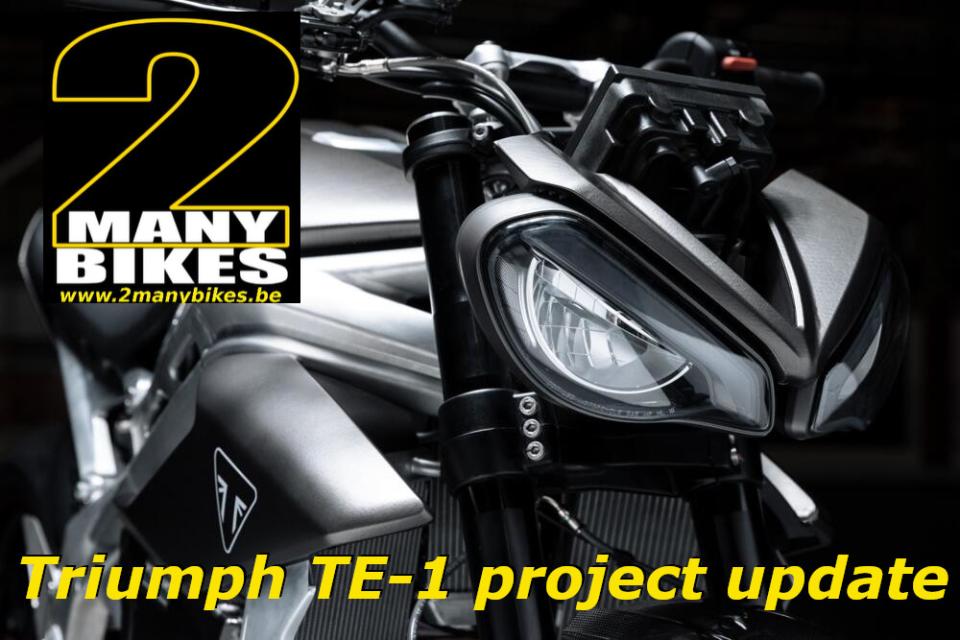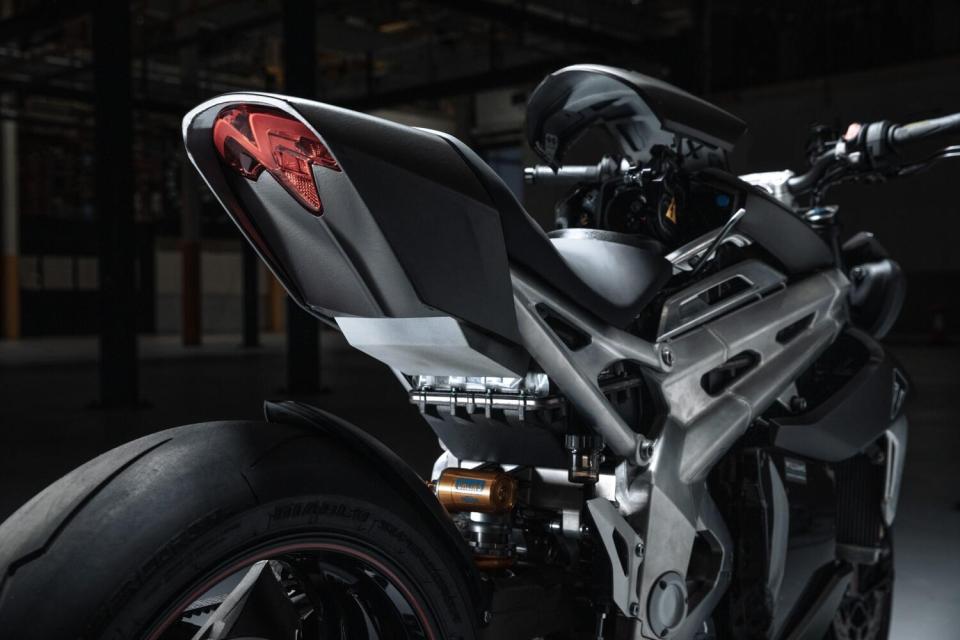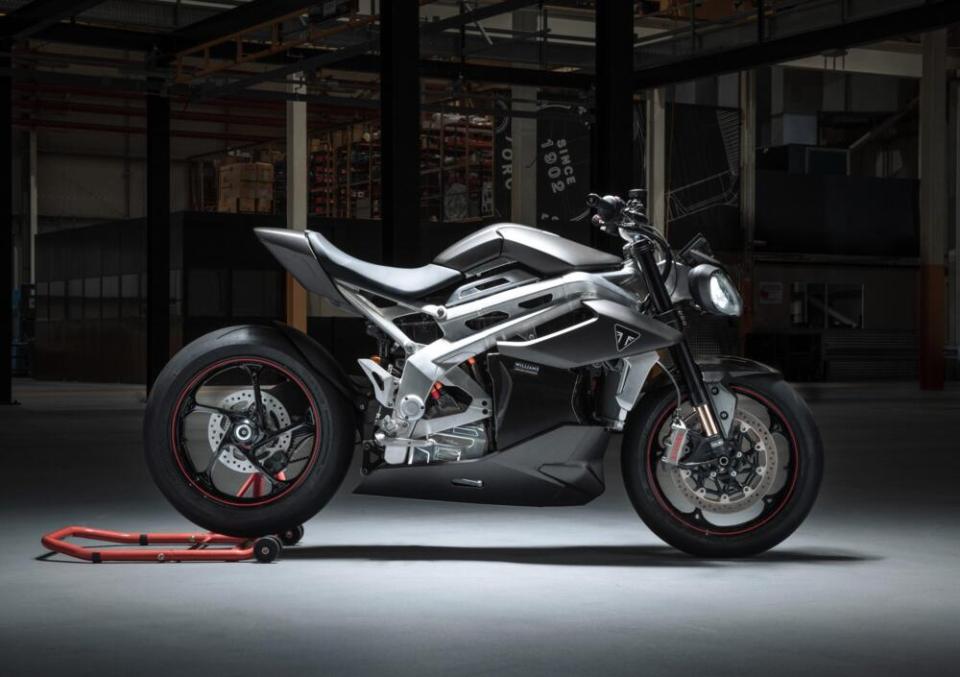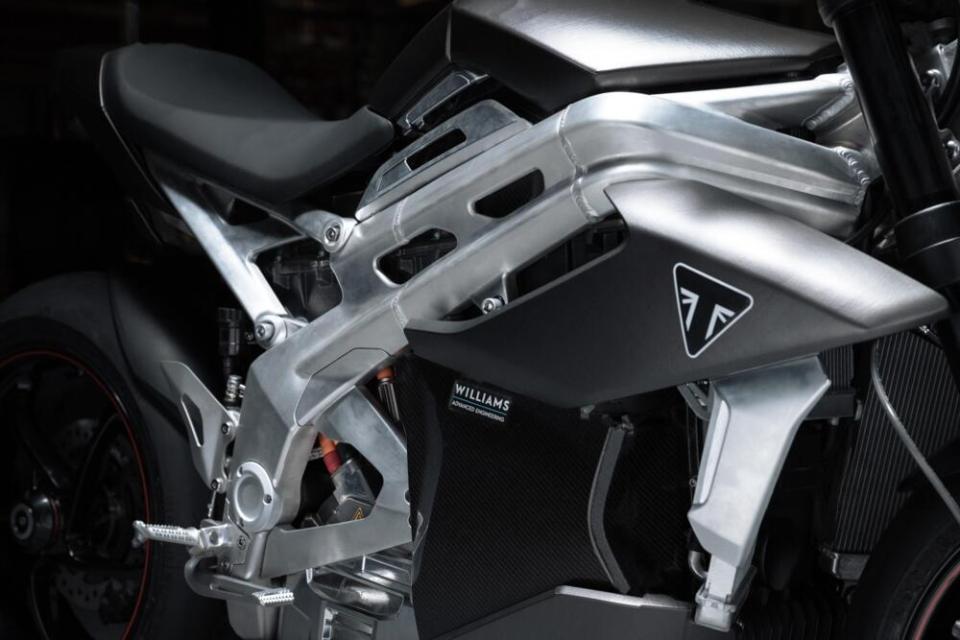TE-1 is a unique collaboration between Triumph Motorcycles, Williams Advanced Engineering, Integral Powertrain Ltd and WMG at the University of Warwick, funded by the Office for Zero Emission Vehicles through Innovate UK and designed to revolutionize development of electric motors.
The broad aim of the TE-1 project, according to Triumph, is primarily focused on developing the potential of electric motorcycling and to showcase innovation and the credibility of British design and design, thus helping to advance Triumph's future electric motorcycle offerings. prepare.
With the construction of the last static demo prototype, phase 3 is now complete. This demo prototype brings together the latest innovations from all partners involved in the project for the first time.
As far as Triumph is concerned, we are talking about the final chassis including subframe, cockpit, panels and wheels, the final drive system including transmission, Gates Carbon drive belt, the electrical equipment, Öhlins upside-down fork, Brembo Monobloc M50 brake calipers and specific motorcycle software from Triumph.
At Williams Advanced Engineering they have been responsible for the latest version of the WAE battery pack with specific cell placement for optimal weight distribution.
A vehicle control unit, a DCDC transformer, integrated cooling, charging port and stylish carbon fiber covers.
Integral Motor has in turn supplied the latest prototype of the powertrain with integrated adjustable inverter and combined motor with SiC technology and integrated cooling.
Finally, the final phase of the test simulation has been completed at WMG, the University of Warwick. According to Triumph, all test results indicate that the project is well on track to meet its targets in terms of performance and sustainability.
Now that the static prototype is completely ready, the test phase of the TE-1 can start under real conditions.
Over the next six months, the prototype will undergo an extensive testing program at Triumph's own test center. The test program consists of two parts: road testing and track testing.
During road testing, the basic functions are evaluated: calibration of the throttle, mapping of engine performance, power and torque delivery, evaluation of battery autonomy and consumption, development of driving modes, validation of the operation of the software and thermal optimization.
A dynamic evaluation will be performed on the track: road holding, acceleration, braking performance and energy regeneration, traction control and wheelie control.
The test program was set up to determine the final setup of the TE-1 dynamic demo prototype.
Triumph expects Phase 4 to be completed by the end of summer 2022. Then the prototype will be provided with the final bodywork and colors, in preparation for a demo on track and a press presentation.
At that time, all project results will be published, including final performance, test results and all important info, such as range and consumption.
Triumph seems determined to deliver a viable electric motorcycle in the near future.




